Long life & success to the farmer
Finding my tribes at The Real Farming Conference, Oxford, and two Oxford markets
At the closing plenary of the 16th Real Farming Conference, journalist Dan Saladino from BBC Radio 4’s The Food Programmes came on stage to share his highlights. I wasn't the only person in Oxford Town Hall to be thinking, ‘I chose the wrong sessions’. Why didn't I go to these. The conference is like The Edinburgh Fringe of farming. It's impossible to go to everything, and it's possible, indeed it's likely that you'll kill yourself trying to dash around from venue to venue, some of which are small and close their doors once full, so you fall back on your second, or third choices, which happened to me because I chose first to go to the seed swap run by The Gaia Foundation.
I met up with friends and colleagues. I talked with the founders of Farms not Factories, the regenerative farming manager at Yeo Valley, finally said hello to Josiah Meldrum from the wonderful Hodmedods, met farmers, food growers, policy makers, activists, and a range of people who'd come together, from urban and rural areas to share, learn, communicate, pass on and share knowledge. After many years of wanting to attend, I'd finally made it. I'd found my tribes. And it was exhausting.
The ORFC takes place at the same time as The Oxford Farming Conference. The ‘proper' conference where smart dress is required if you're invited to meet the princess royal. There was much talk about whether the two conferences would ever meet, acknowledge each other, learn from each other. A shared dinner, and sessions run by DEFRA means there’s a starting place for dialogue if not total agreement about farming.
Over 3,000 farmers, food producers, and advocates for sustainable agriculture, uniting voices from across the globe to cultivate hope and action for a just and resilient food system. It began with farmers choosing a word to reflect on.
Andy Dibben on Solidarity:
“Farming and food have never had such a high profile, but with this has come division. Many challenges we face extend beyond the farm gate, but in civil society, allies are fighting on behalf of farmers. To overcome these challenges, we must work together. Together, we can deliver this revolution.” He reminded delegates of the need to move away from an us or them mentality. To step out of our echo chambers and not just preach to the converted.
Edu H Nualart on Sovereignty (Words by Paola Laini of La Via Campesina):
“Food sovereignty is about the freedom to decide for yourself and your community the food you eat, the seeds you germinate, and the crops you tend. Sovereignty connects rather than divides—do not stand alone. Globalise the struggle, globalise hope.”
Sandra Salazar on Love:
“ORFC is more than a gathering; it’s a divine movement rooted in the love and power of those who nurture the soil and their communities. This movement is a force for healing and transformation. The land speaks to those who will listen’’.
Peelham Farms' Denise Walton on Wisdom;
She spoke of 18th century farmers James Hutton who envisioned the extraordinary, going against the knowledge of his time. ‘‘ you are as much a part of the light as you are of the earth'‘.
James Rebanks on Resistance
‘‘The idea that food can get cheaper without consequences is ludicrous. When I was young, I thought farmers were old, grumpy men who knew everything. Now I know that the point of farming is to create a sustainable future. We must resist the idea that farming isn’t important. We must resist the broken food system and empower young people, like my 17-year-old daughter, to see a future in the field.”
‘‘30 years ago, my family would have thought ORFC are cranks. When we made changes, we looked for brilliant cranks. I've stopped thinking that my grandad knew everything ‘‘.
He went on to talk about farming and the food system. The cost of which is £270 billion pa in the UK.
‘‘when did that became okay? It's crazy to think that we can undermine our own farmers. It's not okay to have a food system that makes farming unprofitable. It's not okay for supermarkets to bully farmers.’’
In the session on Bridging the Rural Urban Divide, chair Bonnie Vandesteeg from The People’s Land Policy suggested that people in the same areas can have different perspectives about the land.
Farming journalist and founder of Just Farmers Anna Jones asked; How do consumers get goods they can afford, and farmers make a profit. Consumers want low prices, farmers want high prices. Around the world, post industrial countries have a stronger rural/urban divide. How we experience food differs in rural and urban area. Rural people are less interested in what they eat.
That sounds like a cliche but it echoes what many farmers have told me over the years, that people in cities are more interested and excited by food, and there's more of us. 86% of us in the UK live in towns and cities.
Anna asked: is there an unconscious bias about the countryside? The perception, from rural about urban is harder, tougher: they think that urbanites don't care about the countryside, an argument that comes up again and again from landowners against the idea of freedom to roam.
Dee Woods doesn’t mince her words. She thinks that there is still a plantation system in place with migrant workers treated like slaves.
I couldn’t make the session on migrant workers from Latin America who had been brought into the UK on Seasonal Workers Visas. The organisation ATLEU is bringing a legal challenge to the government’s Seasonal Worker Visa scheme.
ATLEU is arguing that the Seasonal Worker Visa scheme breaches Article 4 of the European Convention on Human Rights: the prohibition of slavery and forced labour. It is the first challenge to the scheme and they are calling for evidence to support the case. It’s important to make clear that not every farm worker in the UK is treated badly; all should be treated with dignity, fair wages and respect.
Jade Bashford of the Real Farm Trust links up suppliers and hubs. She noted that if you're poor, and in a rural areas it's harder to find support.
I asked the panel if they thought that farmers markets had a place to play in the Rural Urban divide given that they create communities and bring urban and rural together. Anna Jones spoke favourably. It was sad to hear Dee Woods come out with the old cliche ‘if you can afford them'. She mentioned that in Brazil the government subsidies farmers markets. I agree that finance is a key element, for farmers and consumers. I said it then and I’ve said it before; don’t blame farmers for the price it costs to produce real food. Everyone should have enough money to be able to buy good quality ingredients.
In the only session on retail, 3 independent food retailers from Unicorn grocery store in Manchester, Bristols independent food shops Better Food and from Norfolk, the market garden and delivery business Goodery shared their knowledge about connecting local people to local food.
Julia Kirby Smith quoted an unnamed survey that found that organic shoppers aren't who you think they are, and there is plenty of research to show that those on low budgets want to source organic fruit and vegetables.
The words the panel used about shopping in their shops, are very similar to farmers markets. Value. Sense of connection. Celebrating seasons.
As they discussed the battle to break through the retail sector, it’s sadly nothing new that very few independents can afford the risks or the costs of taking a business on a high street, leaving towns to the mercy of chain stores.
Sadly the expert on Maasai cultural resources was unable to attend the session on community, food, land and nature.
Anthropologist and historian Dr JC Niala spoke thoughtfully and eloquently about her study on the allotment holders in Oxford, comparing them to the food systems of her Kenyan heritage.
James Norman has been farming organically for 35 years. His cattle are fed no grain, no silage. He considers managing his part of the world ‘a sacred duty to nature and the world.’
On farm business tenancies, capital gains tax has driven farm land purchases to make profit. In France, if you want to buy farmland you have to be approved- and be a farmer. Why don't we have the same law in the UK? Our current law commodifies the land.
This came up several times at the conference. In another session on farm tax, Guy Singh-Watson got progressively more frustrated and ended saying that farmers should be protesting about being screwed by supermarkets. Round of applause.
James was asked a question about regenerative farming, still very much a buzz word. He first noted that there's no legal framework for the definition, so buying a product made with regeneratively farmed ingredients may mean nothing. He looked wryly at us then added. ‘‘Those who use regenerative farming practices have something. In a few years, if they keep at it long enough they'll invent organic farming’’.
Can farmed salmon ever be sustainable?
“All of the profits are exported, all of the pollution Scotland gets”
We were reminded that the companies who own Scotland's giant salmon farms are based in countries including Norway and Canada.
Can any farmed fish be sustainable? I’m going to be returning to this topic very soon.
We’re under the illusion that we don’t need to think about food, because supermarkets will feed us. Where is our food grown, and how is it grown? Where should it come from? How do we get local food into the local supply chain?
The session on resilience in the food system with Dr Kelly Parsons, arable farmer Tom Pearson, Dr Tim Lang, and Sarah Williams from Sustain asked many questions.
Tim Lang revealed that he’s spent a few years working for the National Preparedness Commission and asked, did anyone know that it exists? He reminded us that the word resilience means to bounce back from shock. And shock means different things to different people with many what ifs. Scale needs to be addressed. How, he asked, would the UK deal with 1939 conditions today? We are not prepared. We don’t stockpile. When asked he confirmed that stockpiling needs to be collective, communal, social, not the task of individual households.
He believes that the Government should think more about food, not farming. Cost of food is the number one issue. If costs go up during a crisis, what framework is in play?Either food chains get shorter, or prices go up. More time spent cooking, less processed food, more diverse food outlets.
Tim was very keen to flag up the Swedish governments’ report on feeding their population. Sweden has a law going through; mayors and local councils have to feed people well in a crisis. The UK needs a new law, a legal framework, it’s the only way to make changes.
I was delighted to hear Sarah say that people should have more money to spend on food. It echoes my earlier comment about farmers not taking the blame for the real cost of food.
What would a sustainable food risk register look like?
What levers would you pull to increase quality of food? All the things you’d expect to be in place;
Public procurement
Food education
Food as medicine movement
Junk food regulations
Taxation
Increase healthy start vouchers, and limit them to local independent food shops and markets.
Regulate down the bad, and build up the good.
The conference was tiring, exhausting, exhilarating, informative and fun. Much to take away, the feeling that some things are still being talked about and never get solved, but the energy and enthusiasm to want to make a difference. Policy makers need to listen and make these changes happen.
It's sad that markets as a route to selling weren’t represented especially as it was clear that there’s still a huge need to regulate supermarkets and improve access to local, farmer-focused routes to market.
And on to the question; why doesn’t a thriving city like Oxford have a farmers market? The covered market in the centre of town was established in 1774, and it still has an air of quaintness about it.
It’s pretty, but like many city centre markets it relies more on a growing hot food trade with just one butcher, one greengrocer, and a cheese-monger (the oldest cheese shop in Oxford). In East Oxford there’s a little farmers and community market on Saturday mornings.
East Oxford Farmers and Community market is a volunteer community run not-for-profit market. It’s a 10 minute bus ride from the centre, in a much more cosmopolitan neighbourhood. I'm glad I had directions on my phone because I didn’t spot a single sign to direct me to the market, not could I find a tell tail breadcrumb trail of people with bags full of fruit and vegetables. I found it. A small market, 7 or 8 stalls in a courtyard, another 4 indoors. The one fruit and vegetable stall has a long queue along its flank, making me think that there must be different way it could be set up to allow customers to browse. What I did appreciate was the clear labelling. If they grow it, if they buy it, where it's from.
Two farms selling meat and poultry. One selling apple juice. A cheese stall (wholesaler). Cakes, bread, cooked foods. I'm equally appreciative of the market's title. Calling it a farmers and community market is more honest than calling it a farmers market, with many products on sale bought in.
The cheese stall had Stichelton on his table, all his hard cheeses were £25 a kilo. In central Oxford, The Jericho cheese company’s price for the same cheese was £50 a kilo. The market is open every Saturday morning from 10am. They post a list of stalls on Instagram the week before.
Back into Oxford for The Covered Market. The website says that it’s open until 5.30pm, with late openings Thursday-Satuday nights. However, at 4pm on a Wednesday, the market was deathly still, with just a few restaurants and a book shop open and a couple of food shops closing up. The website does say check with individual traders for their specific trading hours.
On Saturday the market is much busier. Look for the gnome in the market, a gift from the Polish city of Wroclaw, twinned with Oxford. I've been there; it's famous for its gnome trail (honestly).
Oxford is justly proud to have one of the oldest continually operating markets in the country and there are on-going redevelopment plans for the market on the councils website. I hope that they can encourage more primary food stalls into the market.
Thank you if you took the time to fill in my poll last week; it’s so useful to have your feedback. If you didn’t fill it in and want to respond please do feel free to email or leave a comment below.

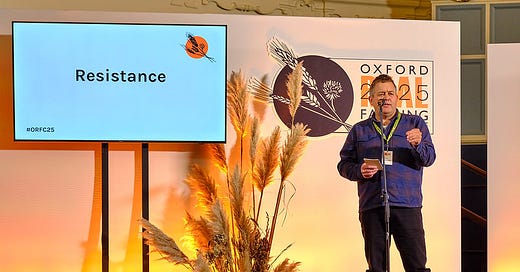



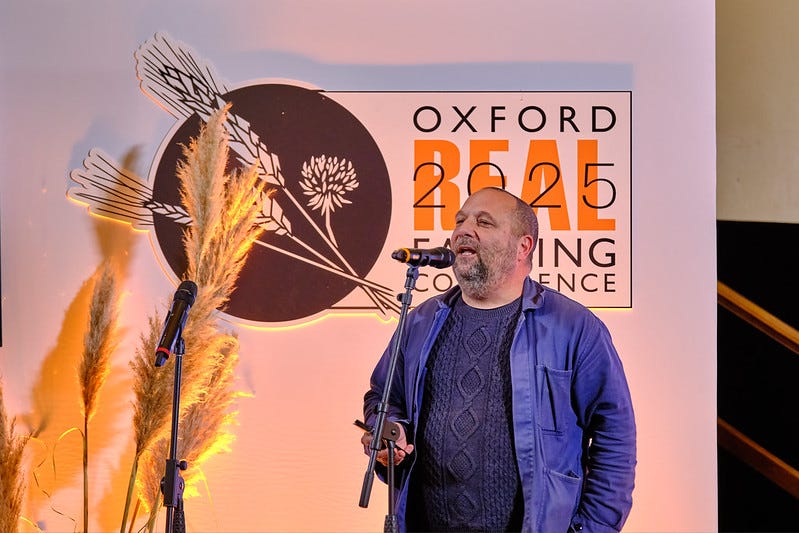
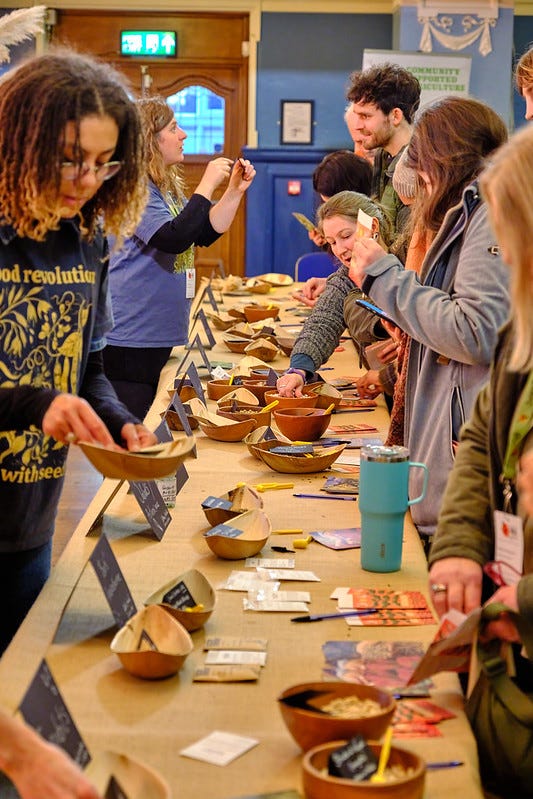
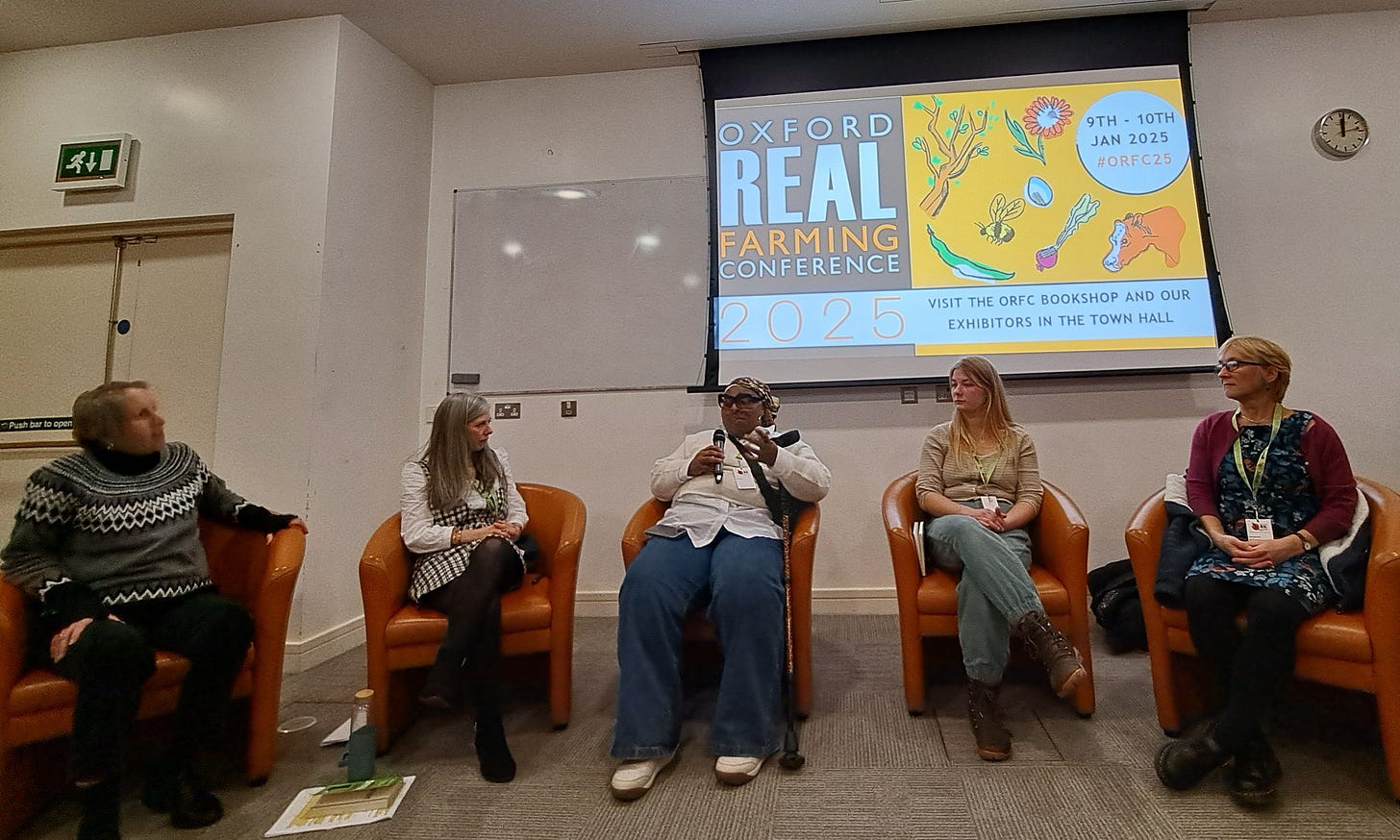
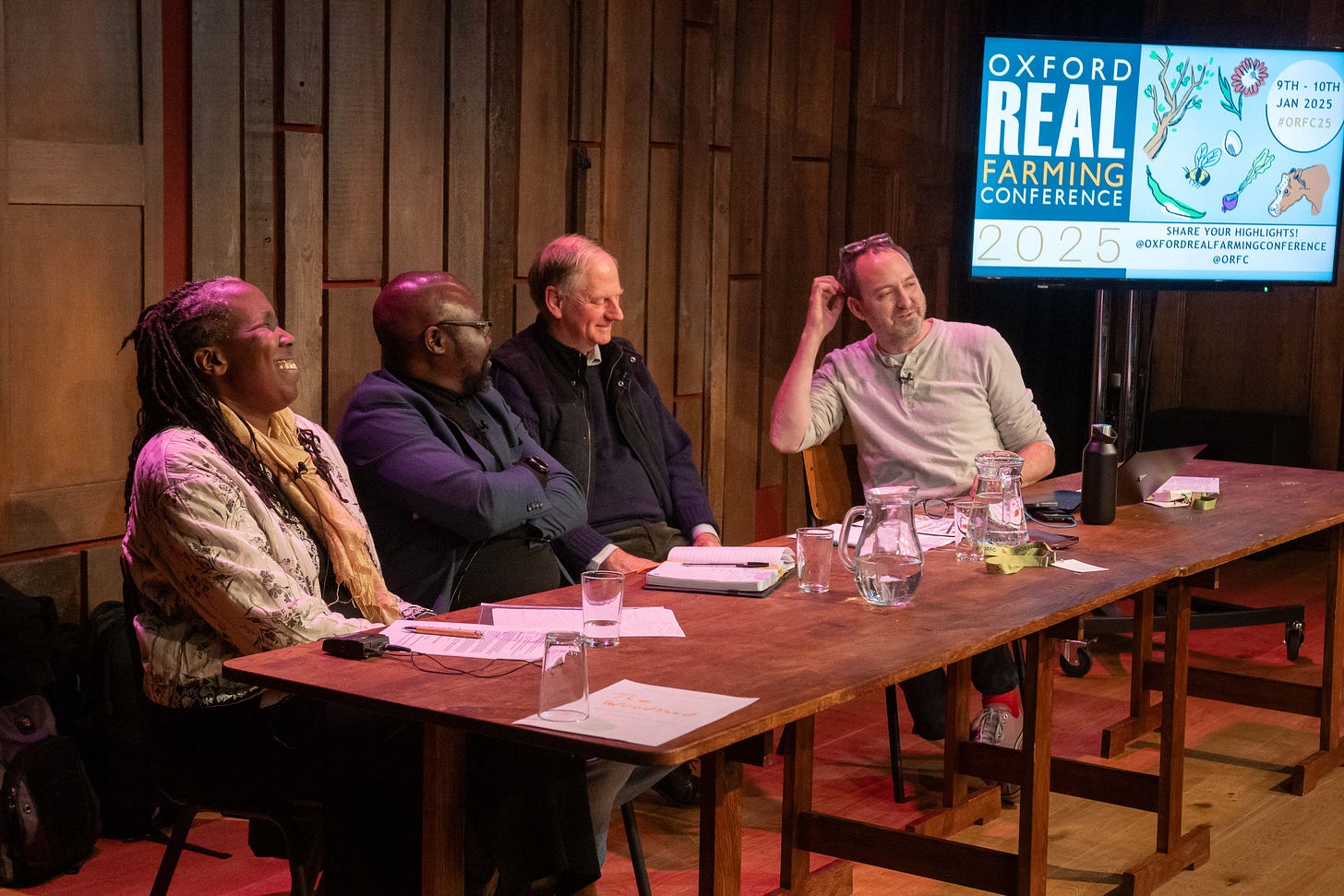
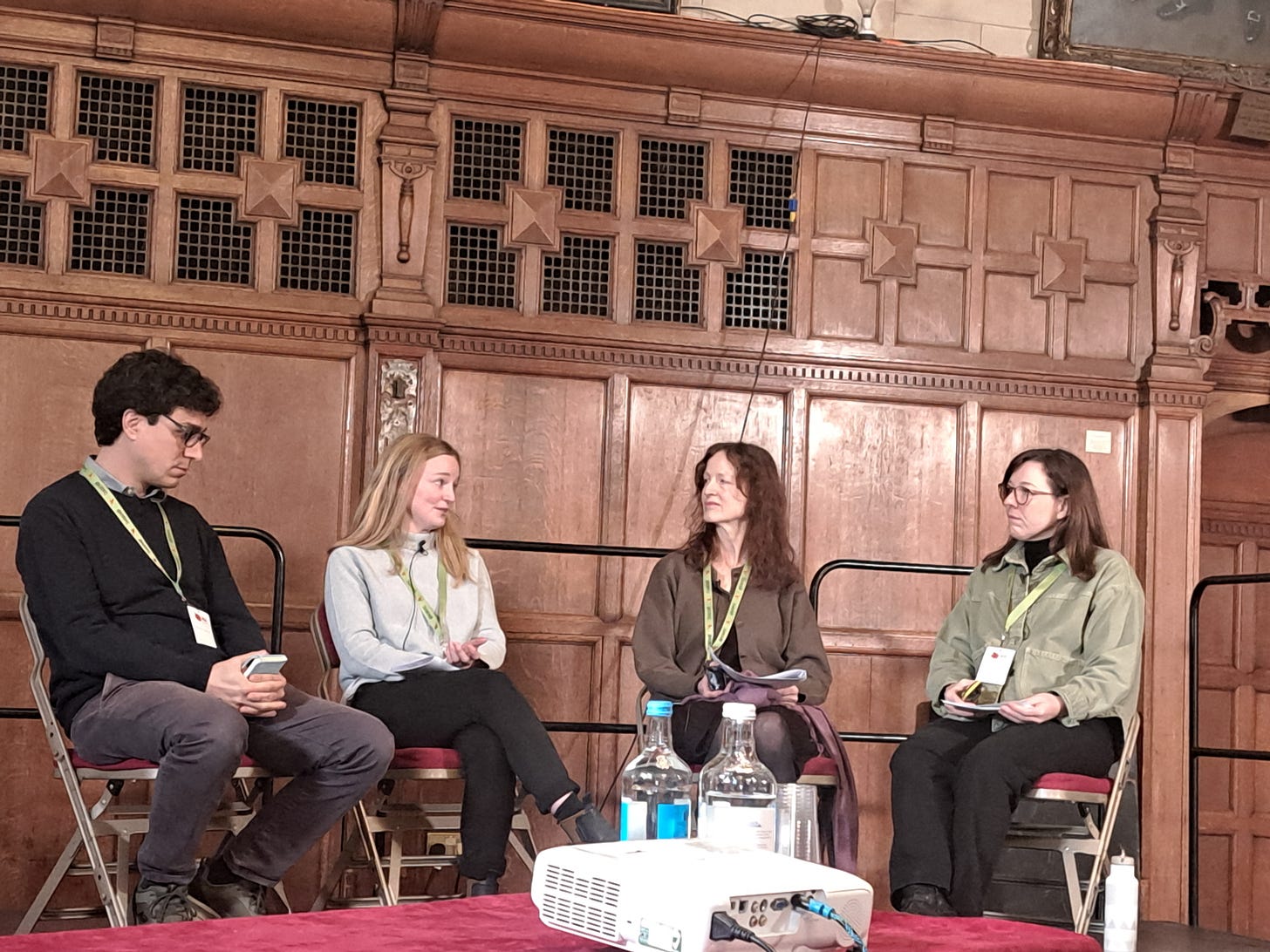
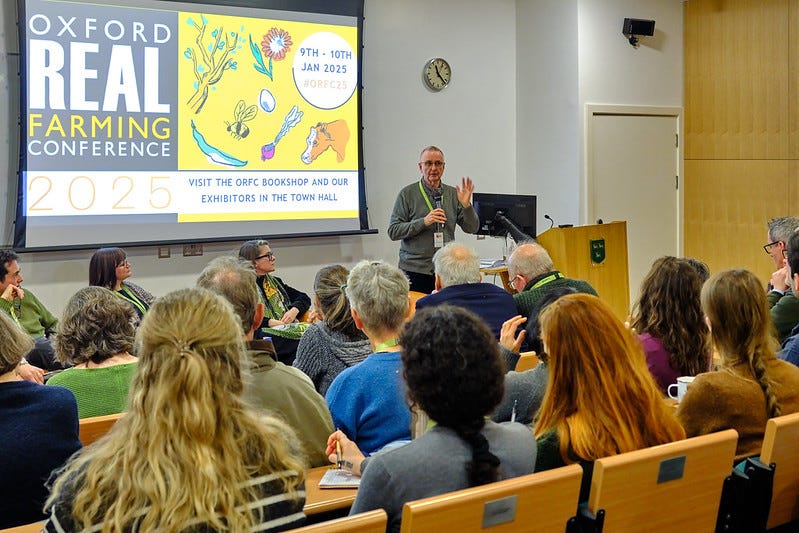
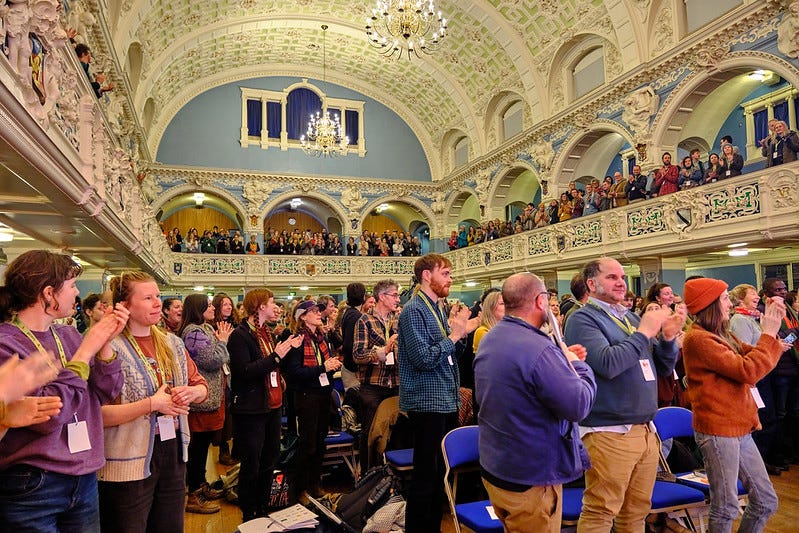
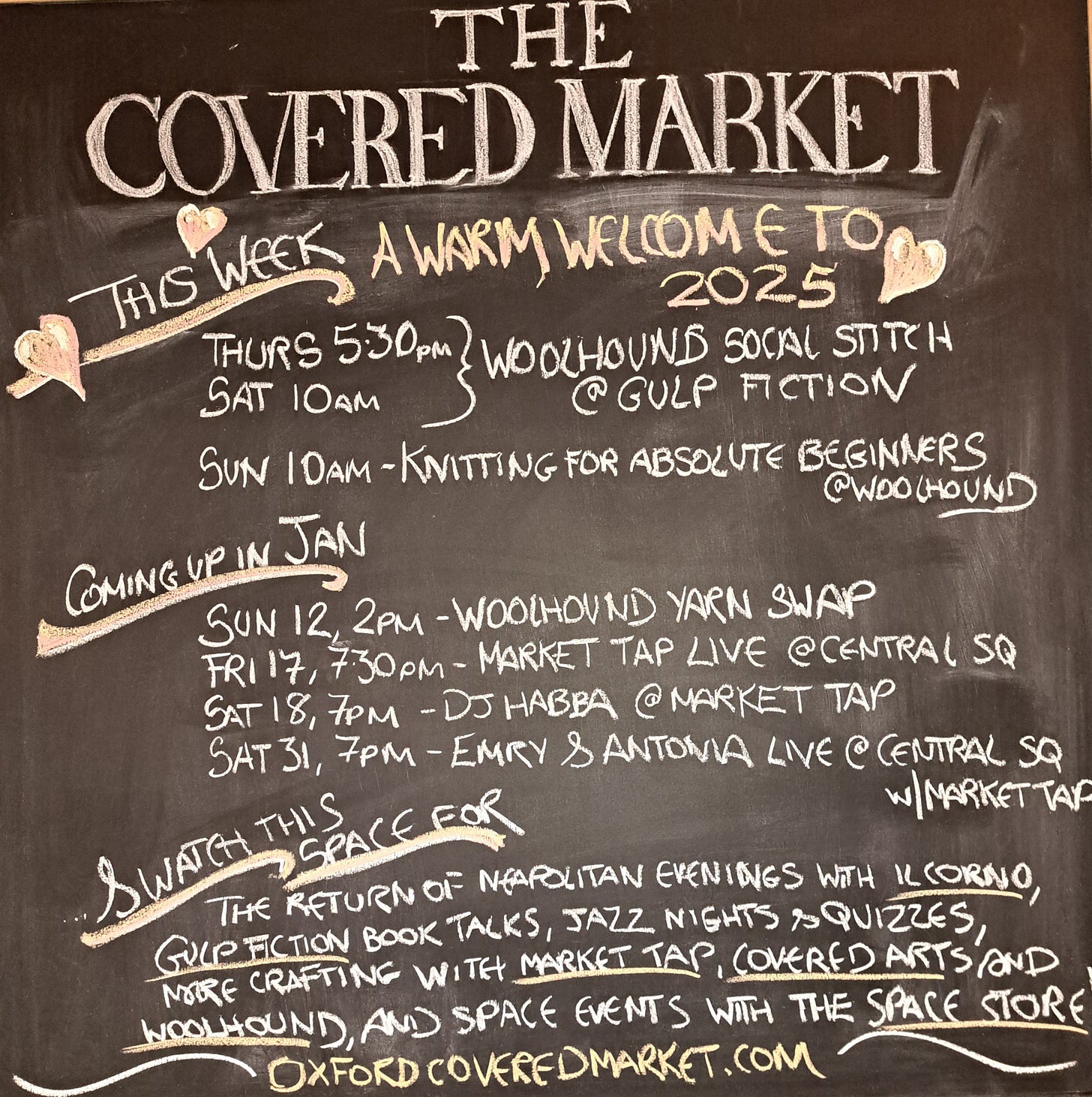
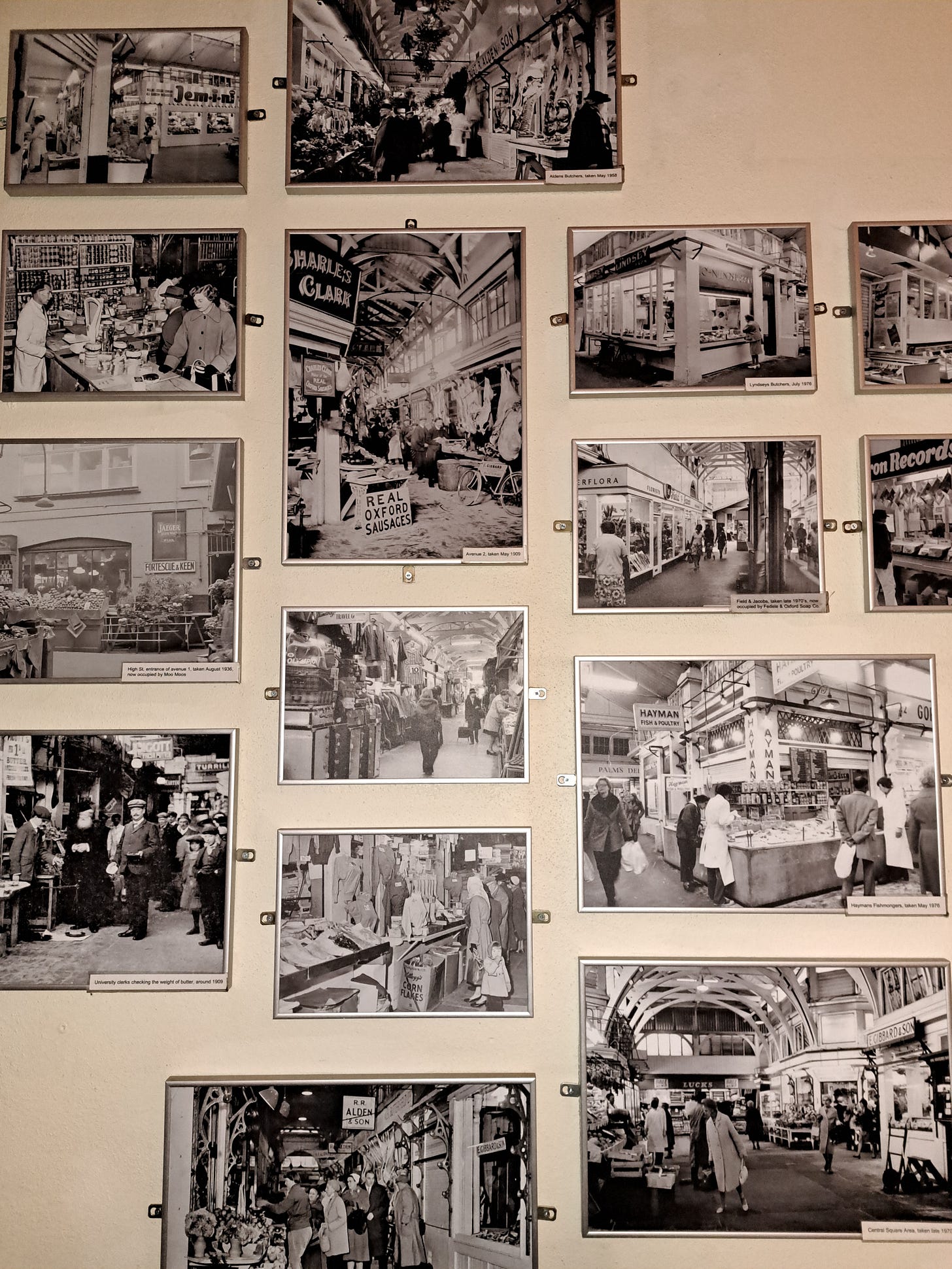
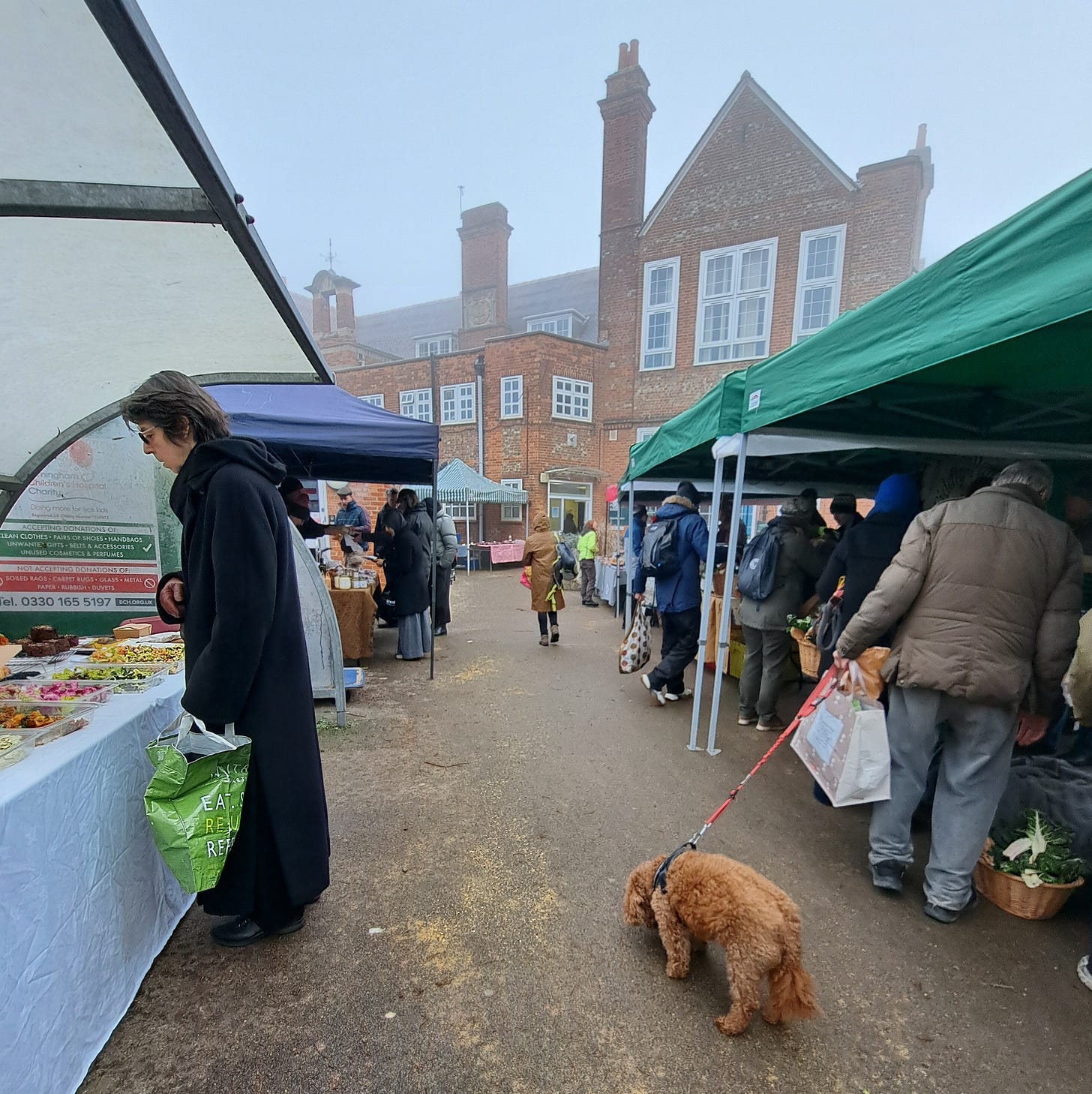
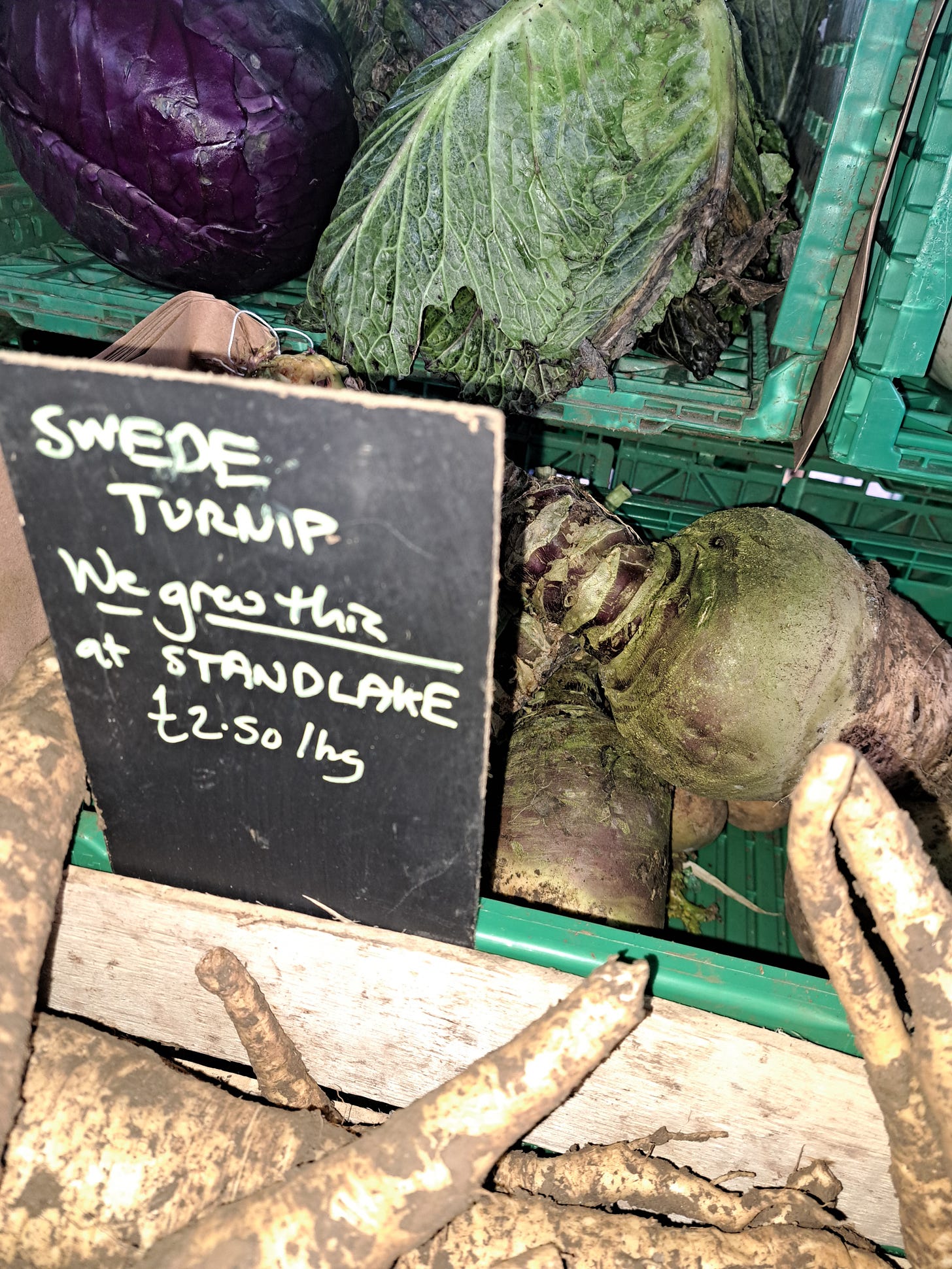
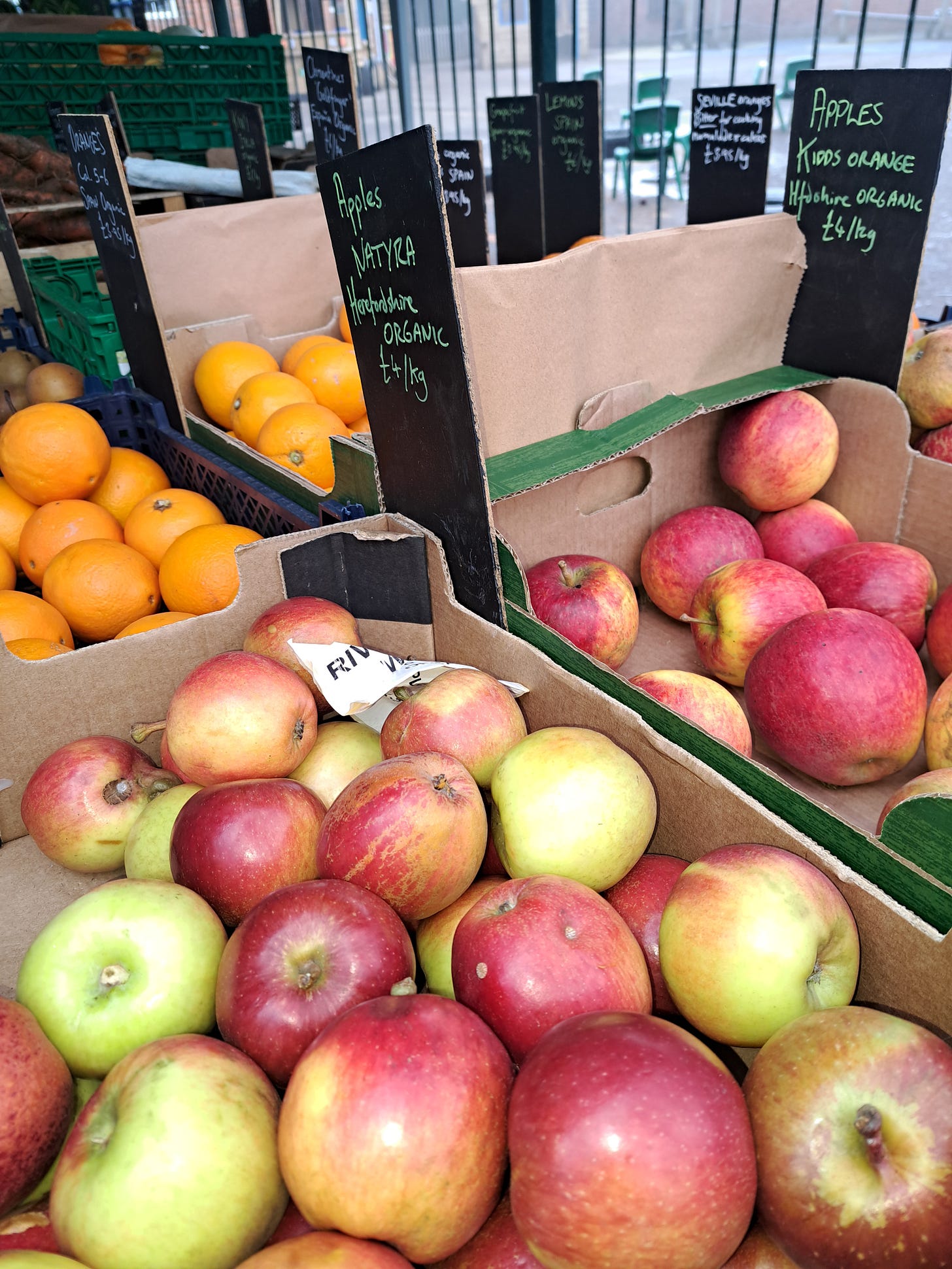
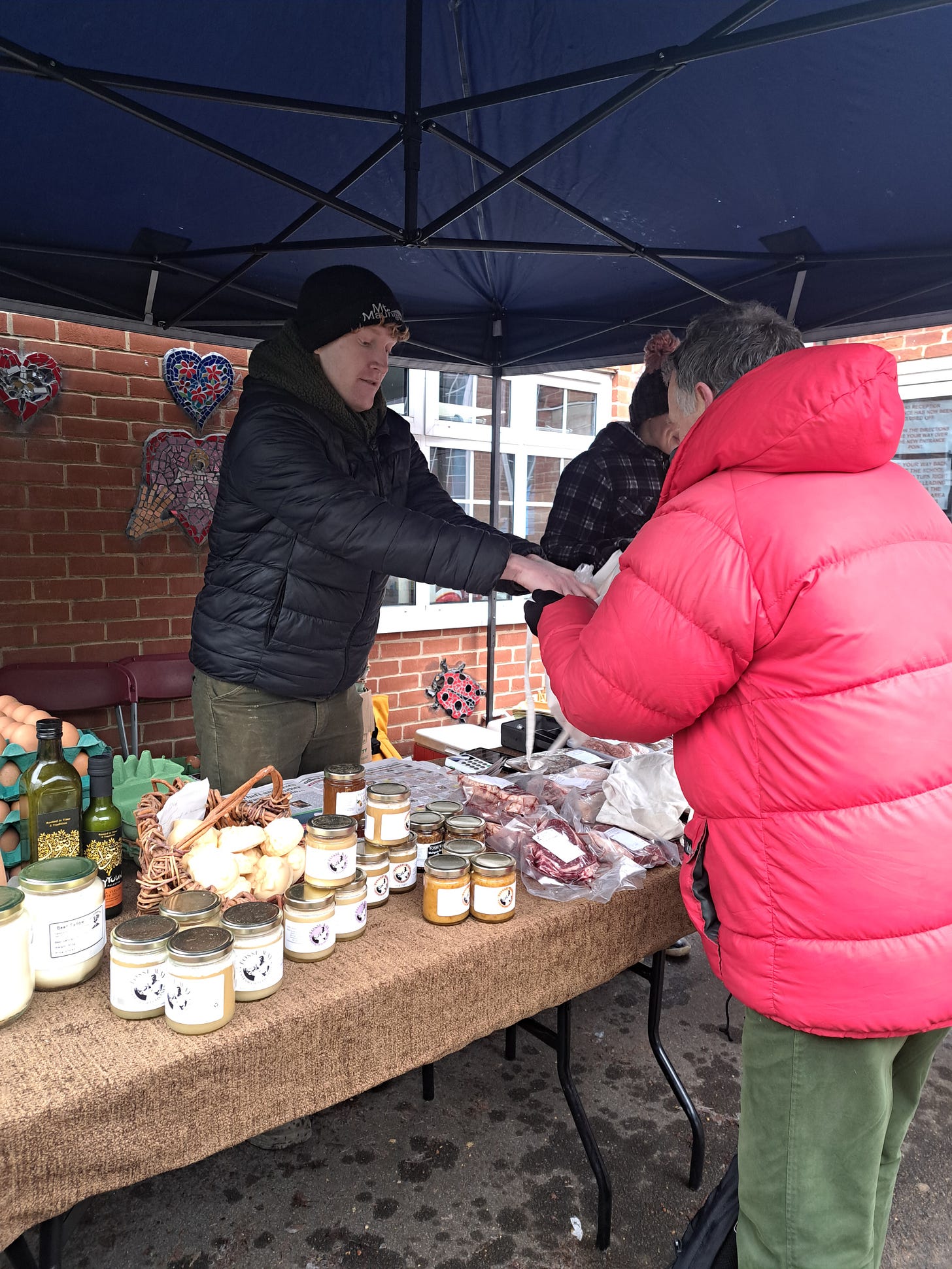
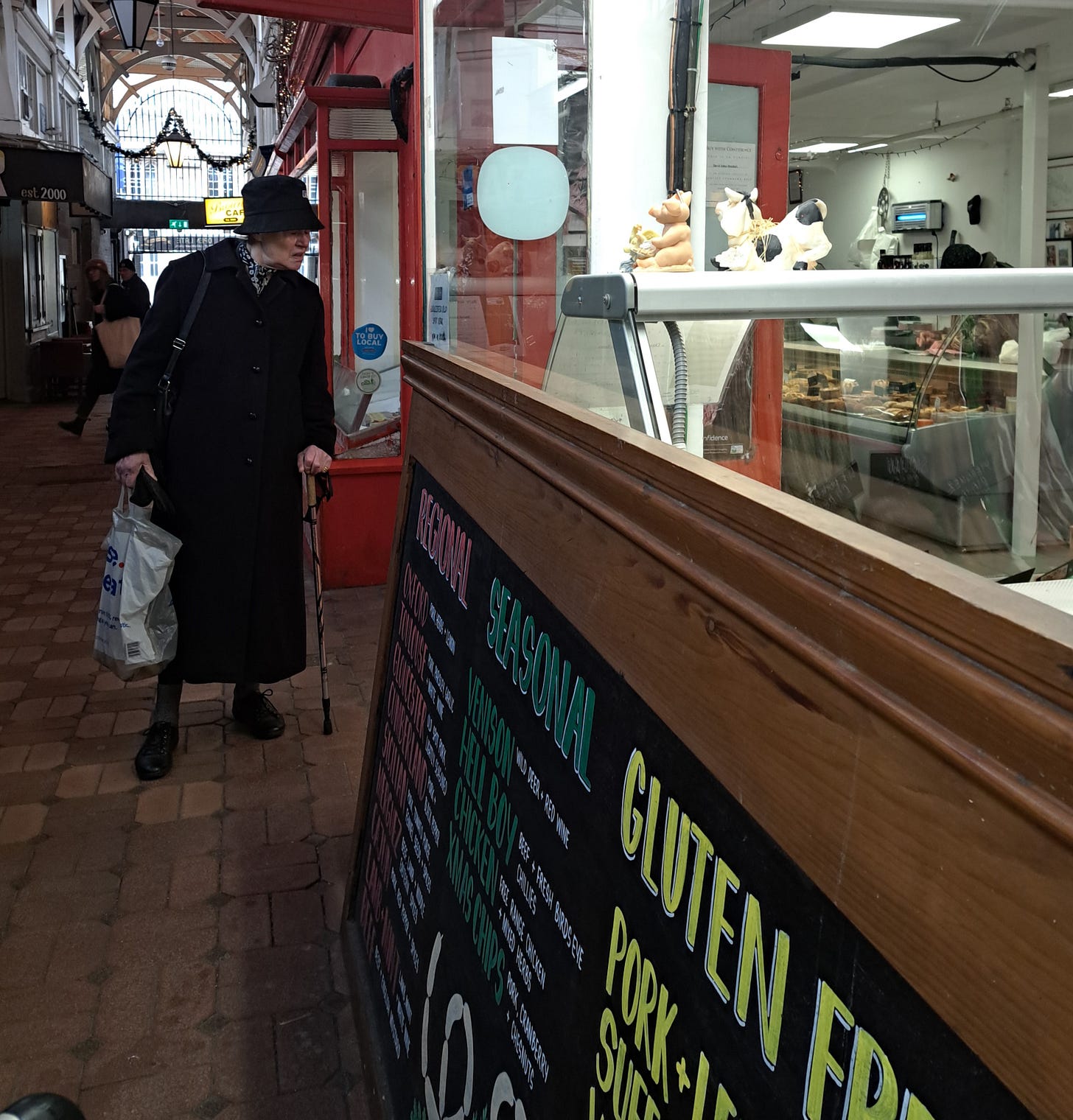
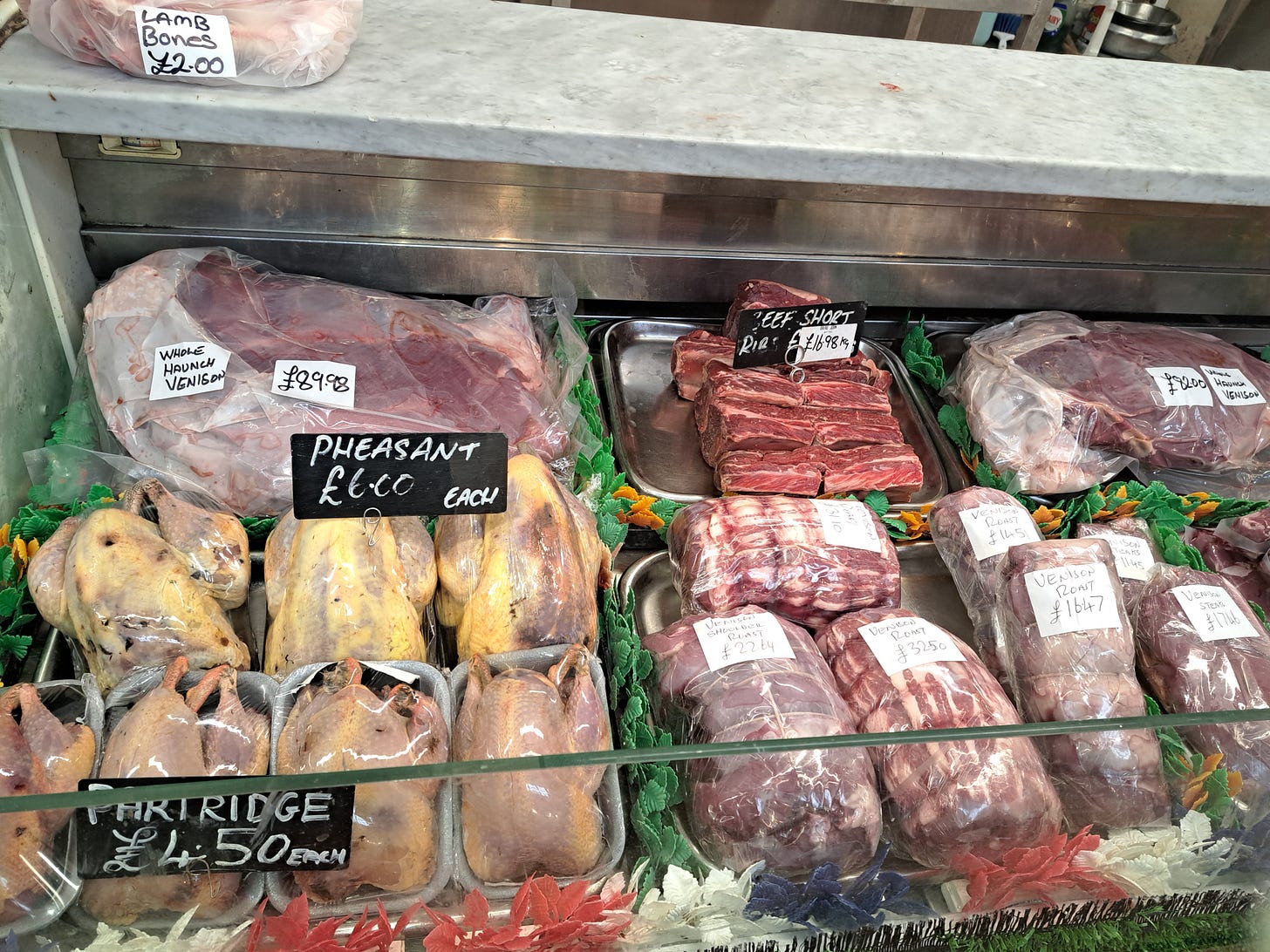
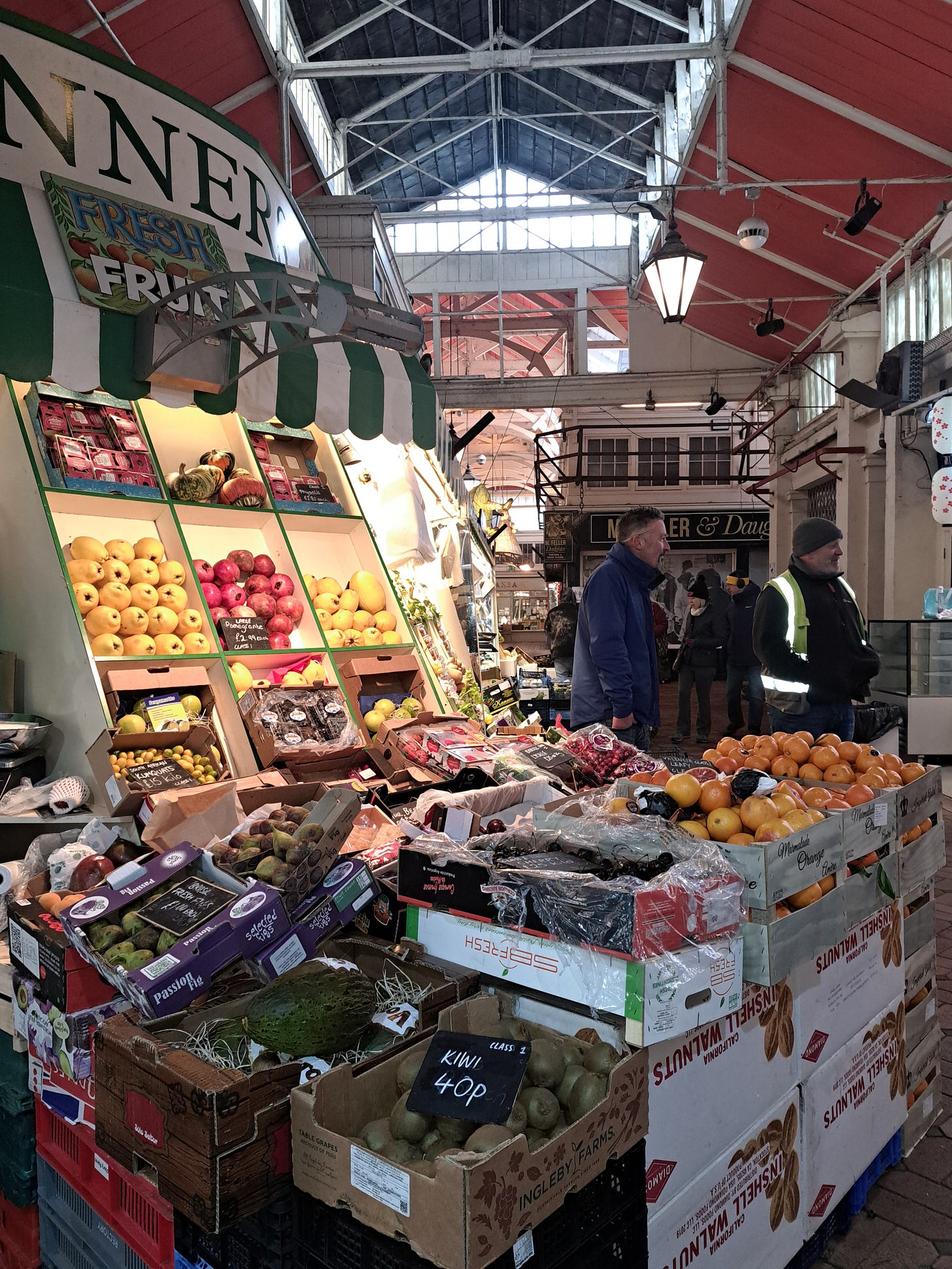
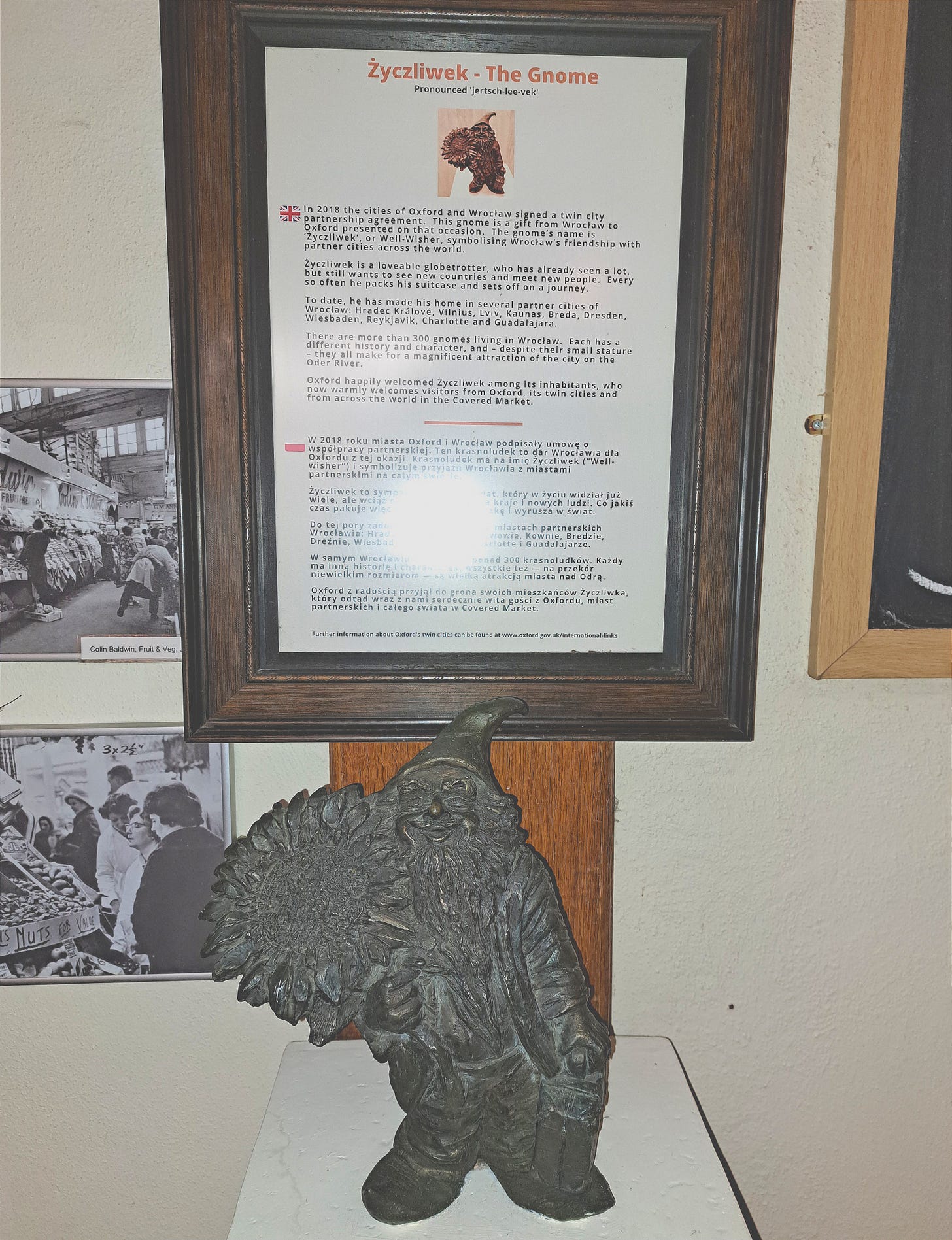
Thanks for the update. Never heard about this before. Unicorn is one of my fav supermarkets and always visit it when I go to Manchester. I love how it is a corporative and is well supported by the local community.
Loved this Cheryl - sound fascinating, if exhausting. You packed a lot in!!